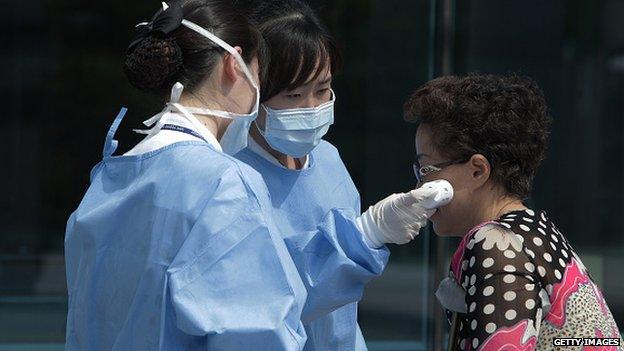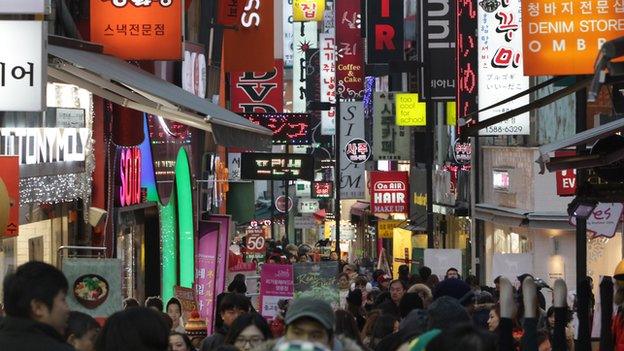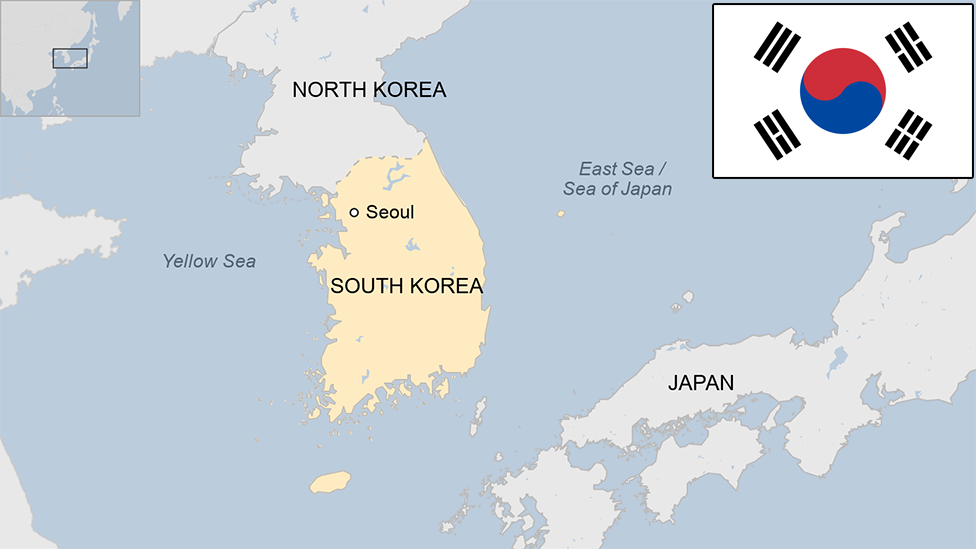S Korea cuts interest rates to record low amid Mers concerns
- Published

Medical staffs check the temperature of a visitor at Seoul Medical Center
South Korea's central bank has cut interest rates to a record low, amid a deadly outbreak of the Middle East Respiratory Syndrome (Mers).
The move is seen an attempt to stem the economic fallout from the outbreak that has killed nine people in Asia's fourth largest economy since it was first reported last last month.
Its policy rate was reduced by 0.25 percentage points to 1.5% - the bank's fourth rate cut in less than a year.
The move was expected by economists.
"We were expecting a rate cut in July, or at least within the third quarter, so we believe the [Bank of Korea's] decision was affected by the MERS outbreak," said Kim Myong-Sil, an analyst at KB Investment & Securities.
The rate cut is also the seventh since the central bank began its easing cycle three years ago.
'Signs of alarm'
Economists said the outbreak of Mers could stop the country's economic recovery, which had appeared to pick up momentum in recent months.

Mers virus explained in 60 seconds
Middle East Respiratory Syndrome (Mers)
Mers is caused by a new type of coronavirus, a type of virus which includes the common cold and Sars (severe acute respiratory syndrome).
First cases emerged in the Middle East in 2012, and the first death in Saudi Arabia in June that year.
Patients have a fever, cough and breathing difficulties, but Mers can also cause pneumonia and kidney failure.
Approximately 36% of reported patients with Mers have died - there is no vaccine or specific treatment.

"There have already been signs of public alarm, with schools closed, public events called off, and tens of thousands of visitors cancelling their travel plans. To compound matters, the outbreak has come at a time when exports are struggling," said Krystal Tan, economist at Capital Economics in a note.
Thousands of people have been quarantined in the country with 14 new cases of Mers reported by health officials on Thursday.
The total of infections has now reached 122 - making it the largest outside of Saudi Arabia.
Hong Kong authorities have also confirmed that they are testing two people for the disease - both of whom had recently travelled to South Korea. Another 31 people have all tested negative.
Exports hit
Authorities in the export-driven country have already been under pressure to introduce more stimulus measures on the back of weak global demand and a stronger won impacting exports.
"Looking at the Korean economy, the Committee notes that the trend of decline in exports has accelerated and that consumption, which had been showing a recovery, appears to have contracted since the outbreak of Middle East Respiratory Syndrome," the central bank said in a statement.
Subways trains are being disinfected in a bid to fight the virus, as Stephen Evans reports
Earlier this month, government data showed that exports saw their worst annual fall in nearly six years in May on a combination of slower growth in China, weaker oil prices and fewer working days - sparking calls for a rate cut.
Exports fell 10.9% from a year go, the biggest drop since an over 20% decline in August 2009 during the global financial crisis.
However, the central bank has been concerned about how cheaper credit would impact South Korea's already massive household debt.
South Korean households have debt amounting to about 160% of annual disposable income on average, one of the highest among major economies.
In its policy announcement, the central bank said it would "closely monitor the trend of increase" in household debt.
- Published4 June 2015

- Published3 January
